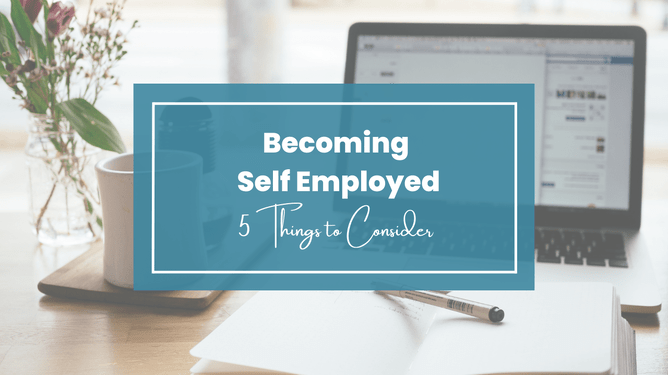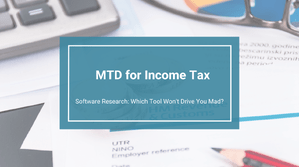5 Reality Checks Before You Ditch Your Day Job in 2025
So you're sitting there, probably in another mind-numbing Teams meeting, dreaming of being your own boss? Yeah, I get it. The allure of working in your pyjamas, setting your own schedule, and finally pursuing that business idea that's been rattling around your head for months.
But hold up – before you dramatically slam your laptop shut and march into your manager's office, let's talk about what it really takes to make self-employment work in 2025. Because spoiler alert: it's not all sunset laptop sessions and "living your best life" Instagram stories.
Disclaimer: This isn't financial or legal advice – I'm not your accountant (though I know some excellent ones). This is straight-talking, been-there-done-that guidance from someone who's navigated these waters.
1. Choose Your Fighter: Business Structure Edition
First up, you need to decide what kind of business you're creating. Think of it like choosing your character in a video game, each has different strengths, weaknesses, and special abilities.
Sole Trader - The Minimalist This is you, flying solo. Simple setup, minimal paperwork, and you keep all the profits after tax. Sounds dreamy, right? Well, here's the catch - legally, there's no separation between you and your business. If things go south, creditors can come after your personal assets. Your house, your car, even that vintage Bruce Springsteen vinyl collection could be at risk.
Limited Company - The Armoured Option More paperwork upfront and ongoing compliance, but you get that crucial legal separation. Your personal assets are generally protected, and there can be tax advantages as you grow. Plus, some clients prefer working with limited companies – it just sounds more professional.
Partnership - The Buddy System Two or more people sharing the load (and the liability). Great for complementary skills, but make sure you have a solid partnership agreement. Trust me, money has a way of testing even the strongest friendships.
2025 Reality Check: The gig economy has exploded, and platforms like Upwork, Fiverr, and even LinkedIn are making it easier than ever to find clients. But they also mean more competition. Your business structure choice might influence how you're perceived in this crowded marketplace.
2. What's in a Name? Quite a bit, Actually
Your business name isn't just what goes on your invoices - it's your first impression, your Google search result, and potentially your biggest marketing asset or liability.
The Name Game Essentials:
Check Companies House (even as a sole trader - trust me on this one)
Secure your domain name - all the obvious extensions (co.uk, com)
Grab your social media handles across all platforms
Consider international domains if you plan to scale globally
2025 Pro Tip: Don't just check if the name is available - Google it, check Instagram, TikTok, LinkedIn. You don't want to launch your consultancy only to discover there's a viral TikTok account with the same name posting dance videos.
The Trademark Question: If you're planning something bigger than a side hustle, consider trademark registration early. It's cheaper than the legal battles that come from not doing it.
3. Banking: Because Your Personal Account Isn't Cutting It
Look, I know it's tempting to just use your personal account for those first few transactions. "It's only temporary," you tell yourself. Don't. Just don't.
For Limited Companies: You legally need a separate business account. End of discussion.
For Sole Traders: Technically optional, practically essential. Here's why:
Tax calculations become infinitely easier
You look professional when clients see business account details
HMRC will love you for clear record-keeping
It forces you to think like a business owner, not someone with an expensive hobby
2025 Banking Reality: Online business banking has revolutionized how we manage finances. Banks like Starling, Monzo, and Mettle offer features that would have cost hundreds in accountancy fees just a few years ago. Real-time expense categorization, automatic receipt scanning, integration with accounting software – it's all there.
4. Insurance and Compliance: The Boring Stuff That Saves Your Bacon
This is where most people's eyes glaze over, but stick with me – this stuff matters more than your Instagram aesthetic.
Insurance Must-Haves:
Professional Indemnity: For when clients blame you for their problems
Public Liability: For when your laptop bag trips someone at a coffee shop meeting
Employers' Liability: If you hire staff (mandatory, not optional)
2025 Cyber Reality Check: Cyber liability insurance isn't just for tech companies anymore. If you handle any client data (and who doesn't?), you need protection against data breaches, ransomware, and cyber attacks.
Compliance Checklist:
Industry-specific licenses (research this thoroughly)
ICO registration for data protection (£52 annual fee, unlimited legal headaches if you skip it)
HMRC registration (deadline: 5th October after the tax year you start trading)
GDPR compliance (still very much a thing post-Brexit)
Working from Home Insurance Gotcha: Your standard home insurance probably doesn't cover business activities, especially if clients visit. Check and upgrade if needed = it's cheaper than discovering you're not covered after something goes wrong.
5. Numbers Don't Lie: Getting Your Numbers Story in Order
Here's where my inner numbers geek gets excited (and where most new entrepreneurs want to hide under a blanket).
Bookkeeping isn't just about keeping HMRC happy – it's your business intelligence system, your numbers story. Without proper records, you're flying blind!.
The Modern Approach: Gone are the days of shoeboxes full of receipts and manual spreadsheets (though spreadsheets still have their place -- fellow numbers geek here, I get it). Cloud-based systems like Xero, FreeAgent, or QuickBooks integrate with your banking, automatically categorize transactions, and generate reports that actually tell you useful things about your business.
The Reality About Wearing All the Hats: When you start out, you're the CEO, CFO, Head of Sales, Marketing Manager, IT Department, and Janitor. It's exhausting, and something's going to suffer. Usually, it's the bookkeeping because it feels less urgent than chasing clients or delivering work.
Investment vs. Expense Mindset: Yes, outsourcing costs money upfront. But think of it as buying back your time and sanity. Would you rather spend your evenings reconciling bank statements or developing your business? A good bookkeeper doesn't just keep your records straight, they become your financial compass, helping you understand profitability, plan for tax bills, and make informed decisions about growth.
2025 AI Integration: Many accounting platforms now use AI to categorize expenses, suggest tax deductions, and even predict cash flow. Embrace the tech - it's like having a junior accountant working 24/7 for the price of a coffee subscription.
The Bottom Line
Self-employment in 2025 is both easier and harder than ever. Easier because technology has made it easier to access tools, markets, and clients. Harder because the competition is global, client expectations are higher, and the economic landscape is more volatile.
But here's what I know after helping people like you navigate this journey: the ones who succeed aren't necessarily the most talented or the luckiest. They're the ones who treat their business like a business from day one, not like an expensive hobby they hope will pay off someday.
So if you're serious about this – and I mean properly serious, not just "I hate my job" serious – then get these fundamentals right. Your future self will thank you when you're actually living that laptop lifestyle instead of just posting about it.
Ready to turn your self-employment dreams into reality?
Ready to turn your self-employment dreams into reality? Let's talk numbers. Let's get those financial foundations right, they are the difference between businesses that thrive and those that just survive.
Book a free consultation and let's map out your path to sustainable self-employment – without the financial stress that keeps most people awake at 3 AM.
Book here: Capture your dream




